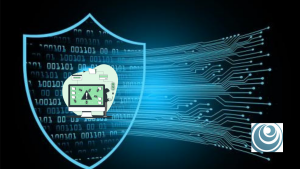Introduction
In today’s digital age, data breaches have become an all-too-common threat for businesses, both large and small. The consequences of such breaches can be catastrophic, ranging from financial losses to irreparable damage to a company’s reputation. This article delves into the critical importance of safeguarding sensitive information and provides expert assessments on how businesses can effectively protect themselves against the rising tide of data breaches.
Data Breaches: A Looming Threat
Data breaches can wreak havoc on businesses, causing them to lose not only valuable data but also the trust of their customers. Hackers and cybercriminals are constantly evolving their tactics, making it imperative for businesses to stay one step ahead in the cybersecurity game. Such breaches can occur through various channels, from sophisticated cyberattacks to simple human errors.
The Costly Consequences
The fallout from a data breach can be staggering. Financial losses are often just the tip of the iceberg. A business’s reputation can be irreversibly tarnished, leading to a decline in customer loyalty and a subsequent drop in revenue. The legal and regulatory ramifications can also be immense, with hefty fines and legal battles becoming a grim reality. This makes it essential for businesses to take proactive measures to safeguard their sensitive information.
Safeguarding Sensitive Information: Our Expert Assessment
1. Cybersecurity Audits: Taking Stock of Vulnerabilities
Regular cybersecurity audits are a cornerstone of an effective data protection strategy. These audits involve thorough assessments of a company’s existing security measures, identifying vulnerabilities and areas for improvement. By conducting these audits, businesses can identify and address potential weak points before they are exploited by malicious actors.
2. Robust Encryption: Locking Down Data
Encryption is a powerful tool that can render stolen data useless to unauthorized individuals. Implementing robust encryption protocols across all data storage and transmission systems adds an additional layer of security. This ensures that even if a breach occurs, the stolen data remains indecipherable and unusable.
3. Employee Training: The Human Firewall
One of the weakest links in any cybersecurity framework is human error. Employees can unwittingly become conduits for data breaches through actions like clicking on malicious links or sharing sensitive information with unauthorized parties. Comprehensive training programs can empower employees to recognize and thwart potential threats, turning them into the first line of defense against breaches.
4. Multi-factor Authentication (MFA): Bolstering Access Control
MFA adds an extra layer of protection by requiring users to provide multiple forms of identification before gaining access to sensitive systems or data. This makes it significantly harder for unauthorized individuals to breach secure systems, even if they manage to obtain login credentials.
5. Incident Response Plans: Swift and Coordinated Action
No matter how robust a business’s defenses are, breaches can still occur. Having a well-defined incident response plan in place can minimize the damage by enabling swift and coordinated actions. This plan should outline steps to contain the breach, notify affected parties, and restore normal operations as quickly as possible.
6. Regular Updates and Patch Management: Staying Current
Outdated software and unpatched systems are prime targets for cyberattacks. Regularly updating software and promptly applying security patches are crucial for preventing breaches. Cybercriminals often exploit known vulnerabilities in outdated systems, making proactive patch management essential.
FAQs
Q: How common are data breaches in businesses today?
Data breaches have unfortunately become quite common, with thousands occurring each year across various industries. They can affect businesses of all sizes, from small startups to large corporations.
Q: What are LSI keywords, and why are they important for SEO?
LSI (Latent Semantic Indexing) keywords are related terms that help search engines understand the context of your content. Including LSI keywords in your headings and subheadings can improve the relevance and search visibility of your article.
Q: Can small businesses also be targeted by cybercriminals?
Absolutely. In fact, small businesses are often seen as easier targets due to potentially weaker cybersecurity measures. Cybercriminals know that even a small breach can lead to significant financial losses for these businesses.
Q: How can I ensure my employees are following cybersecurity best practices?
Regular training sessions and workshops focused on cybersecurity awareness are essential. These sessions can educate employees about common threats, teach them how to recognize phishing attempts, and guide them on proper password hygiene.
Q: Are there any legal consequences for businesses that experience data breaches?
Yes, there can be legal ramifications, especially if the breach involves the exposure of customer data. Depending on the jurisdiction, businesses might be subject to hefty fines for failing to adequately protect sensitive information.
Q: What should I do if my business experiences a data breach?
First, follow your incident response plan. Notify affected parties promptly, secure the breach, and work on restoring normal operations. Depending on the scale of the breach, you might also need to involve legal authorities and cybersecurity experts.
Conclusion
Data breaches are not only a threat but a harsh reality that businesses must face in today’s interconnected world. The cost of inadequate protection can be devastating, impacting a business’s financial health and reputation. By implementing comprehensive cybersecurity measures, staying vigilant, and prioritizing the protection of sensitive information, businesses can mitigate the risks posed by data breaches. Remember, safeguarding your sensitive information is not just an option – it’s a necessity in the digital age.



